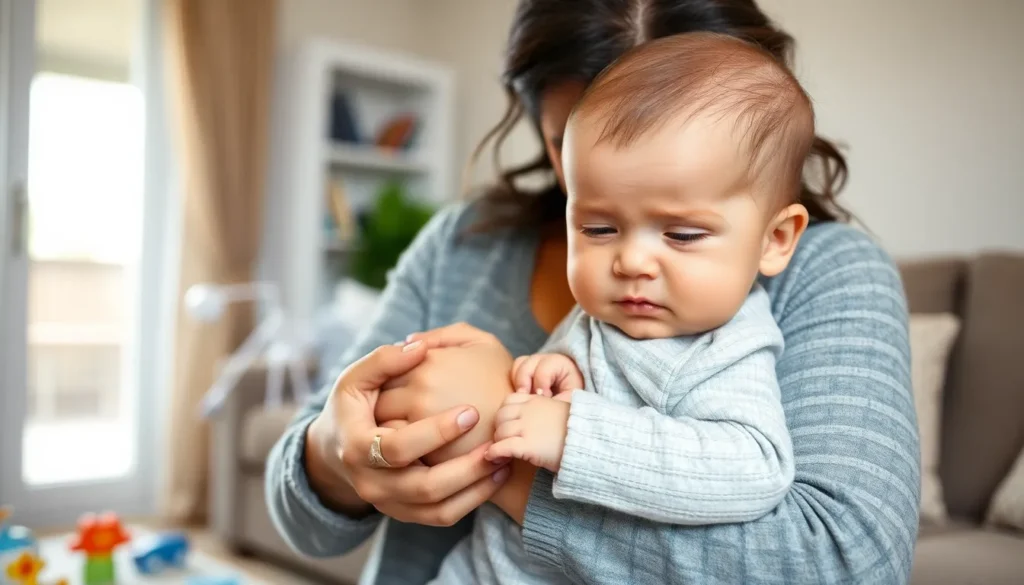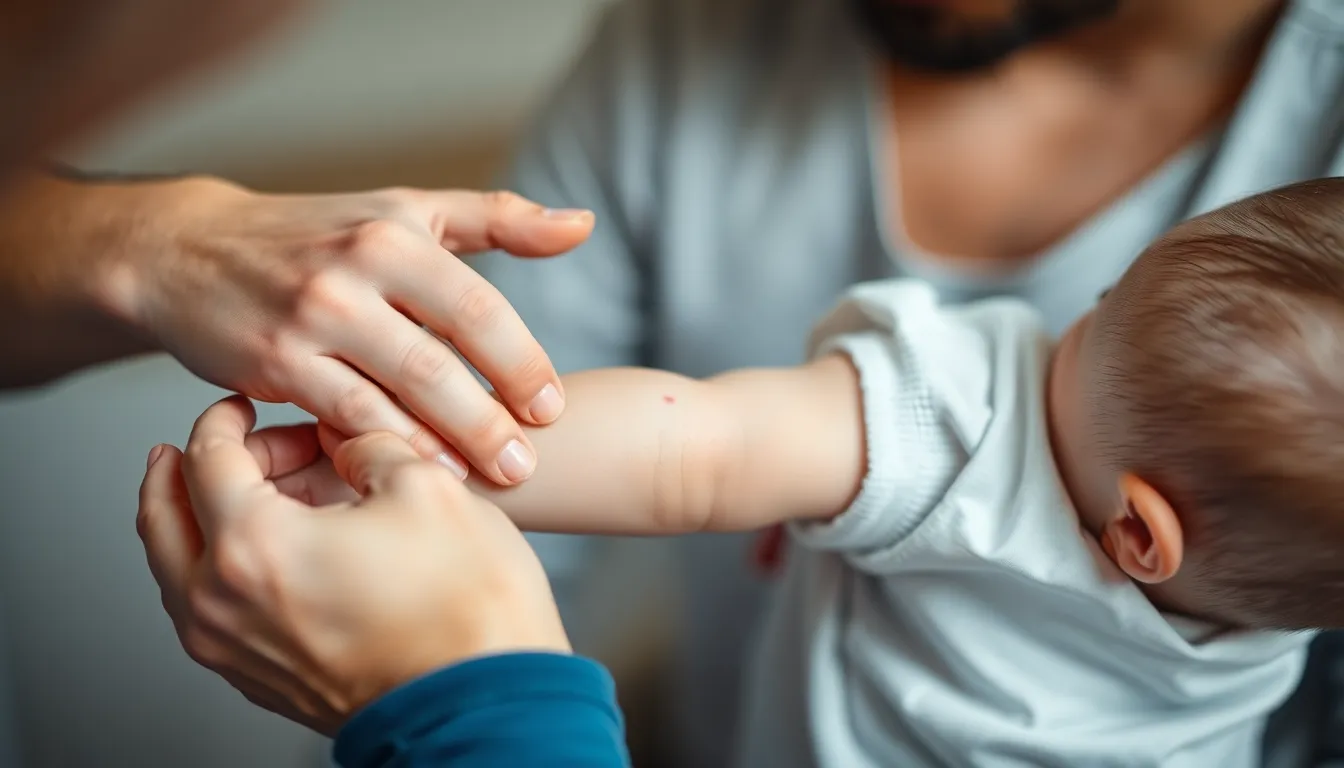Table of Contents
ToggleEvery parent knows that those tiny needles can pack a punch. When babies receive their vaccinations, it’s not just a quick jab; it often comes with a side of swelling that could make even the toughest little ones frown. But don’t panic! That swollen spot is usually just the body’s way of throwing a mini celebration for the immune system kicking into gear.
Understanding Swelling After Baby Shots
Swelling after vaccinations is a common occurrence in infants. This reaction signals the immune system’s engagement in response to the vaccine.
What Is It?
Swelling refers to localized inflammation at the injection site. This swelling can appear as a raised, tender area on the skin. It usually develops within a few hours after the shot. The inflamed area might feel warm and may vary in size. In most cases, this reaction is temporary and resolves within a few days. Signs of normal swelling include mild discomfort that doesn’t hinder the baby’s activities.
Common Causes
Several factors contribute to swelling after baby shots. Vaccines introduce antigens, prompting the body’s immune response. Injection technique can also play a role, as improper administration may cause more irritation. Individual sensitivity to components within the vaccine may lead to localized swelling. Sometimes, additives in vaccines, like aluminum salts, can result in a reaction. Parents should note that swelling is a common bodily response and typically doesn’t indicate a serious issue.
Symptoms of Swelling After Baby Shots
Swelling after vaccinations can manifest in several ways. Localized reactions occur directly at the injection site, while systemic reactions affect the entire body.
Localized Reactions
Localized reactions involve swelling, redness, and warmth at the injection site. These symptoms arise within hours of receiving the shot. Parents might notice a raised, tender area on the skin, which signifies the body’s response to the vaccine. Tenderness with gentle touch is common, yet it typically does not cause significant discomfort. Lasting between a few days and a week, these localized symptoms usually resolve on their own. The presence of a lump may also be apparent but generally is not a cause for alarm. Monitoring the area helps ensure any increasing redness or swelling doesn’t occur.
Systemic Reactions
Systemic reactions encompass broader symptoms that can appear a few days after vaccination. Common symptoms include fever, irritability, and decreased appetite. Babies might exhibit fatigue or discomfort that affects their usual activities. These body-wide symptoms, although concerning for parents, represent a normal immune response to the vaccine components. Monitoring for these signs is essential, especially if they persist for more than a few days. The presence of systemic reactions indicates that the immune system is actively responding to the vaccine, helping to build protection against diseases.
Duration and Management
Swelling after baby shots is typically temporary. It generally resolves quickly, but some care and attention can help manage the symptoms.
How Long It Lasts
Swelling usually appears within a few hours after the injection. Most commonly, this localized inflammation lasts from one to five days. Full resolution is expected in a week, with mild discomfort preceding that. Babies may show different sensitivities, so individual experiences can vary slightly. Parents should monitor the injection site to ensure it is improving.
Home Remedies and Care
Applying a cool compress can soothe the area and reduce swelling. Using over-the-counter pain relievers, such as acetaminophen or ibuprofen, can help manage discomfort. Parents should ensure they follow appropriate dosing guidelines based on the child’s age and weight. Keeping the baby occupied with gentle activities may also distract from any soreness. Elevating the arm or leg, if possible, can further assist with reducing swelling.
When to Seek Medical Attention
Swelling after baby shots usually indicates a normal immune response. However, certain signs may require prompt medical attention.
Signs of Severe Reactions
A severe allergic reaction, known as anaphylaxis, can occur in rare cases. Symptoms may include difficulty breathing, swelling of the face or throat, rapid heartbeat, or a severe rash. High fever, particularly over 104°F, alongside irritability or lethargy may also signal a more serious issue. If swelling increases significantly or does not improve within one week, it’s critical to consult a healthcare provider. Paying attention to these symptoms can help ensure the baby’s safety after vaccinations.
Consultations with Healthcare Providers
Consultations with healthcare providers become essential under specific circumstances. Contact a pediatrician for persistent swelling or if other worrying symptoms arise. Experts suggest reaching out for any unusual changes following vaccinations. Parents can also discuss concerns about the baby’s reaction to the shot, offering peace of mind. Trusting medical professionals helps address any uncertainties about the child’s health post-vaccination. Keeping a record of symptoms can assist healthcare providers in making informed decisions.
Conclusion
Swelling after baby shots is a common and usually harmless reaction that signals the immune system’s response to vaccination. Parents can rest assured that this localized inflammation typically resolves within a few days. By monitoring symptoms and providing comfort measures like cool compresses, they can help ease any discomfort their child may experience.
It’s essential to stay informed about when to seek medical attention. While most reactions are mild and temporary, awareness of severe symptoms can ensure prompt care if needed. Keeping an open line of communication with healthcare providers is vital for addressing any concerns and ensuring the child’s well-being after vaccinations.








